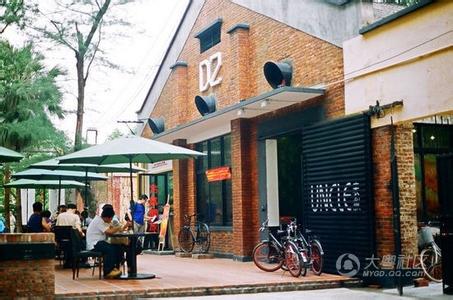Introduction to the description of Manor Grade Brand, graded Taste and Flavor of Kenyan Coffee beans
Introduction to the description of Manor Grade Brand, graded Taste and Flavor of Kenyan Coffee beans
The increase in the number of Kenyan coffee is obvious, from 1969 to 1970, when 800000 bags were exported, and between 1985 and 1986, the output increased to 2 million bags. The general yield is stable at 1.6 million bags, with an average yield of about 650kg per hectare. Even before coffee prices skyrocketed, the average price of coffee in Kenya had been rising. Prices in 1993-1994 were 50% higher than they were 12 months ago. The rise in prices is mainly the result of increased demand.
Some buyers, especially Japanese businessmen, have expressed dissatisfaction with the Kenyan coffee industry system. Some businessmen say that the quality of coffee in the country has declined, and point out that buying directly from farmers may be a way to improve the quality. But in any case, Kenya's detailed rules and regulations and sound procedures are a model worth learning from for all coffee-producing countries. It is fragrant, full-bodied, fruity and has a rich and perfect taste. Kenyan coffee has a wonderful fruit flavor, tastes like BlackBerry and grapefruit, and is a favorite of many coffee gluttons. This coffee has an excellent medium purity, crisp and refreshing taste. It has a fresh flavor and is most suitable for drinking iced coffee in summer. When tasting this coffee, if it is paired with sour fruits such as grapefruit, it will certainly give me the best coffee experience. "not much like coffee, but a bit like fruit tea" is the common feeling of many people about this kind of shallow roasted Kenyan coffee. In addition to having obvious and charming fruit acidity, Kenyan coffee is mostly from small coffee farmers, planted in a variety of different environments, encounter different climate and rainfall every year, and bring a variety of distinct and unique personalities. Take the AAPlus grade "KenyaAA+Samburu" as an example, the Samburu in 2001 has a strong aroma of black plum, low acidity and strong taste. The newly harvested Samburu in the winter of 2002 presents a completely different flavor, mulberry berry and green plum, with a touch of Nanyang spice (Spicy) flavor, after drinking sweet green tea in Kenya's northern neighbor Arabica coffee tree origin of Ethiopia, but as late as the beginning of the 20th century, began to engage in coffee cultivation In the 19th century, missionaries introduced Arabica trees from Yemen, but did not plant them in large quantities. It was not until 1893, when the ancient Brazilian bourbon seeds were introduced, that coffee was cultivated on a large scale. That is to say, Kenyan coffee has Brazilian ancestry. Due to differences in water, climate and handling methods, Kenyan bean flavor is very different from Brazilian beans. Brazilian coffee is planted at a low altitude, with soft texture and no obvious sour taste. In contrast, Kenyan coffee trees are mainly concentrated on the slopes near Mount Kenya, about 4 to 6500 feet above sea level, which is suitable for coffee beans to develop their flavor, because the mountain temperature is lower and the growth is slower, and the aromatic components of coffee beans are fully developed. the acidity of the fruit is more obvious and the texture is harder. In addition, Kenya was an early British colony, and the British had established a set of perfect cultivation and quality control system. After the independence of Kenya, the coffee industry built on the existing foundation.

Important Notice :
前街咖啡 FrontStreet Coffee has moved to new addredd:
FrontStreet Coffee Address: 315,Donghua East Road,GuangZhou
Tel:020 38364473
- Prev

Kilimanjaro Ground Coffee Scale Flavor Description Taste Manor Region Introduction
Kilimanjaro ground coffee scale flavor description taste estate production area introduction tanzania's main coffee production area is located at the foot of mount kilimanjaro, this place has rich volcanic soil, coffee trees planted here some have been more than 100 years old, the earliest coffee was first introduced from kenya by christians to cultivate coffee, coffee trees must be carefully cared for, weed removal and fertilization.
- Next

Description of planting Environment and Flavor of Sumatran Coffee Bean
Sumatran Coffee Bean growing Environment Flavor description of the growing area varieties introduce tall trees with bright red pointed leaves and long red cherries. It is generally a natural hybrid variety of iron pickup. Planting area Lake Toba, Aceh. The Netherlands brought this variety to be planted at high elevations on the island of Sumatra. After losing it for a while, the seed was restarted on an organic farm in Lake dopa.
Related
- Detailed explanation of Jadeite planting Land in Panamanian Jadeite Manor introduction to the grading system of Jadeite competitive bidding, Red bid, Green bid and Rose Summer
- Story of Coffee planting in Brenka region of Costa Rica Stonehenge Manor anaerobic heavy honey treatment of flavor mouth
- What's on the barrel of Blue Mountain Coffee beans?
- Can American coffee also pull flowers? How to use hot American style to pull out a good-looking pattern?
- Can you make a cold extract with coffee beans? What is the right proportion for cold-extracted coffee formula?
- Indonesian PWN Gold Mandrine Coffee Origin Features Flavor How to Chong? Mandolin coffee is American.
- A brief introduction to the flavor characteristics of Brazilian yellow bourbon coffee beans
- What is the effect of different water quality on the flavor of cold-extracted coffee? What kind of water is best for brewing coffee?
- Why do you think of Rose Summer whenever you mention Panamanian coffee?
- Introduction to the characteristics of authentic blue mountain coffee bean producing areas? What is the CIB Coffee Authority in Jamaica?

